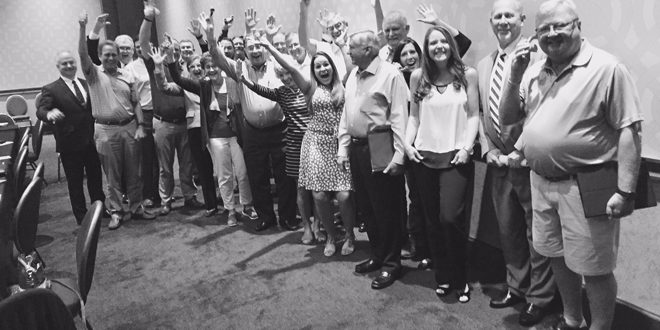S. 2155, a regulatory relief bill for community banks, passed the U.S. House of Representatives on Tuesday. With its passage through the Senate in March, it will now head to President Trump’s desk for his signature and become law.
It is the first bipartisan bill to pass through Congress in quite a while and contains several COMMONSENSE adjustments to regulations that have hurt community banks’ ability to lend to customers.
The bill is the result of many years of advocacy from state bankers associations, such as the OBA, and national organizations, such as the ABA and ICBA, as well as numerous individual bankers.
Here are just SOME of the things to know about how the bill will affect community banks in Oklahoma (courtesy the ABA):
• The bill designates mortgages held in portfolio as Qualified Mortgages (limited to banks with less than $10 billion in assets), giving more creditworthy borrowers access to mortgages while maintaining incentives for strong underwriting.
• Reinstates a federal requirement that allows renters to stay in a foreclosed property for at least 90 days or until their lease expires.
• S. 2155 would exempt community banks under $10 billion in assets that have less than 5 percent of their total consolidated assets involved in trading activities from the Volcker Rule.
• For banks above $50 billion in assets, S. 2155 raises the so-called “Systemically Important Financial Institution” threshold from $50 billion in assets to $100 billion immediately and then increases the threshold to $250 billion after six months.
• Banks with less than $250 billion in assets will no longer have to conduct burdensome, unnecessary stress tests mandated by Dodd-Frank. (The stress tests are often called DFAST).
• Under S. 2155, community banks that originate less than 500 mortgage loans annually will be exempt from reporting a recently expanded set of data on mortgage lending that went into effect Jan. 1 of this year. HMDA reporting requirements for smaller banks will remain the same as they’ve been for more than a decade, including 23 unique data fields for each and every home applicant. This change will simply ease one of the most significant compliance burdens on smaller institutions. It will also allow those banks to focus more time serving their communities rather than filling out compliance forms.
The ABA has also put together a “Reality Check” list to help dispel several myths and blatant falsehoods about S.2155, while explaining what it really accomplishes. This list could be quite valuable to banks and bankers discussing the bill’s passage with customers or media.
Click here to download it.
Again, thanks to everyone who had a hand in the passage of this bill. We hope it isn’t the final destination in our continuing drive to lessen the impact of onerous and costly regulations, but we believe it is an important waypoint. This is a victory for our Association’s community banks, which means it’s a victory for all of us!
 Oklahoma Bankers Association We make bankers better!
Oklahoma Bankers Association We make bankers better!

